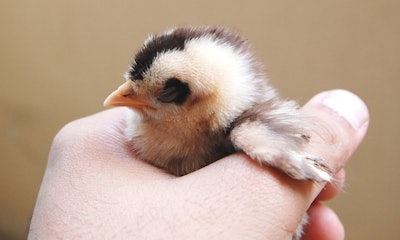
Last week, during the Figan trade show in Zaragoza, Spain, my colleague Cindy Burgos and I had the opportunity to interview a Spanish poultry producer: Rubén Martínez, CEO of Granja Avícola Rujamar. The company received the award for poultry excellence, presented at the show.
Rujamar is the largest cage-free egg producer in Spain, whether the eggs are laid on the floor in a poultry house, free-range or organic. The interview was very much enjoyable. One aspect of the interview was pleasantly surprising: the conviction of Rubén Martínez to be at the forefront of animal welfare.
We know that companies in the poultry industry are just that, companies, and not precisely non-profit organizations. Therefore, it is essential that they make money. Efficiency is then of paramount importance. Efficiency has led us to keep animals confined, for a thousand and one reasons that I will not discuss here.
However, times change. We cannot deny reality and sit by idly. Animal welfare is a bomb that has exploded in our hands and we must react. I have been critical of the insolence surrounding animal rights organizations, but I also criticize the inactivity of many poultry producers, not only for not defending the industry, but also for not looking out for new possibilities of what can be done. That's why I liked the attitude of this Spanish poultry producer.
I know it's not easy. It takes time. I would tell pressure groups or non-poultry companies that boast of "innovations," that they should not expect changes from overnight. Surely, they would not either risk so many resources that have been invested. It is very easy to be a big chain of coffee shops or hotels and say that you will no longer serve eggs from caged layers, when your business is coffee or rooms, and you do not have a single hen in production (nor do you manufacture cups to serve coffee, or sheets on the beds).
Let's see, then, what we can do. Maybe in the end we will be convinced, and it will be better than we thought.
What do you think?


















